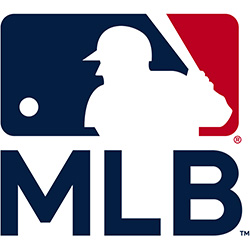 A new MiLB wage battle is brewing in Florida, as MLB is working on the state level to exempt pro baseball from the state’s minimum wage requirements–tying into the many existential challenges faced by the sport.
A new MiLB wage battle is brewing in Florida, as MLB is working on the state level to exempt pro baseball from the state’s minimum wage requirements–tying into the many existential challenges faced by the sport.
MLB is lobbying the state to exempt professional baseball players from minimum wage requirements, embracing the DeSantis administration in an effort to avoid wages outside the six-month regular season. Traditionally players have not been paid for spring training or instructional league action, but that practice was put aside in May 2022 when U.S. District Judge Joseph C. Spero ruled minor-league players playing in the California League and attending spring training, extended spring training and instructional league play in Arizona and Florida were subject to back pay. In addition, he ruled that MiLB players are full-time employees “throughout the calendar year,” with MLB teams liable for $1,882,650 in penalties generated because of incomplete record-keeping. In addition, he ruled under California law that travel time must count as payable time for California League players, as well as spring training in both Florida and Arizona under certain circumstances (i.e., if players were required to participate in scheduled activities before traveling).
MLB has worked to introduce legislation that would “clarify” the judge’s decision in the Florida Legislature, but would at the end of the day scale back MiLB player compensation. The Florida political scene is dominated by Gov. Ron DeSantis, whose Republican Party also controls both houses of the state legislature. So a lobbying effort like this means MLB has retained a top advisor to DeSantis for lobbying assistance; it’s also meant MLB owners have made some serious contributions to DeSantis. (Of particular interest has been a $1 million contribution to DeSantis from Chicago Cubs owner Tom Ricketts the day before legislation was introduced. This may not be totally connected to this wage legislation: the Ricketts family is famously Republican–Pete Ricketts is a former Republican governor of Nebraska, and the family has deep roots in the Republican Party.)
Many in the sport considered Spero’s decision the final word on how Minor League Baseball players would be paid: you typically don’t go to state courts to counter a federal judge’s rulings. And by approaching multiple states to exempt MiLB players from minimum wage standards–an exemption already approved by Texas, by the way–MLB is working to establish an even less expensive approach to managing Minor League Baseball. Yes, MiLB wages were slightly raised, better workplace conditions were implemented last year on the food and hotel front, and adequate housing was mandated for players on the home front.
How much this means in the long run will determine on talks going on right now between the players and MLB after a MiLB union was approved by players. Discussions are underway, and according to folks both inside the room and close to the room the talks have centered on three areas: higher wages, better work conditions (both at home and on the road), and improved health care and treatments. The third might come as a surprise to many within the industry, but it makes sense for players: pro baseball careers on average have notoriously short shelf lives, and proper health care at the right time could allow many player to remain in the sport.
Still, it’s not clear how receptive MLB reps have been to these proposals. On the one hand there are plenty of owners who see MiLB more as a necessary annoyance rather than as an integral part of the game. These owners are quietly discussing even more cuts on the MiLB level in terms of rosters, with some opening advocating trimming off a chain-link team or even bringing up yet more contraction. Let the indy Partner Leagues carry more of the load in terms of players development costs, they say. This is not a small/large market issue: there are plenty of clubs across the spectrum arguing for larger MiLB rosters–ranging from the Yankees to the Red–but honestly the issue meets with indifference in most front offices. MiLB still operates in a constant state of change; last month MLB took over all streaming and broadcast rights to MiLB games, perceived as a move to fill open spots in broadcast schedules when MLB teams launch their own streaming services if we see the collapse of regional sports networks.
We’re not so sure contraction is a serious option right now: there would be a political hailstorm if MLB yet again tried to eliminate any more MiLB teams, especially with many state and local agreements paying for facility upgrades and agreeing to MiLB minimum wage changes. But with MLB in the midst of upheaval on many levels, you can’t totally dismiss potential MiLB player contraction. (To put it another way: Texas is not a minimum-wage state when it comes to baseball; California is. Do the math when it comes to MiLB player payrolls, and where MiLB teams are located may end up depending on the wage situation.) Again, we’re not entirely sure MLB realizes how many challenges the sport faces. We’ll see.
